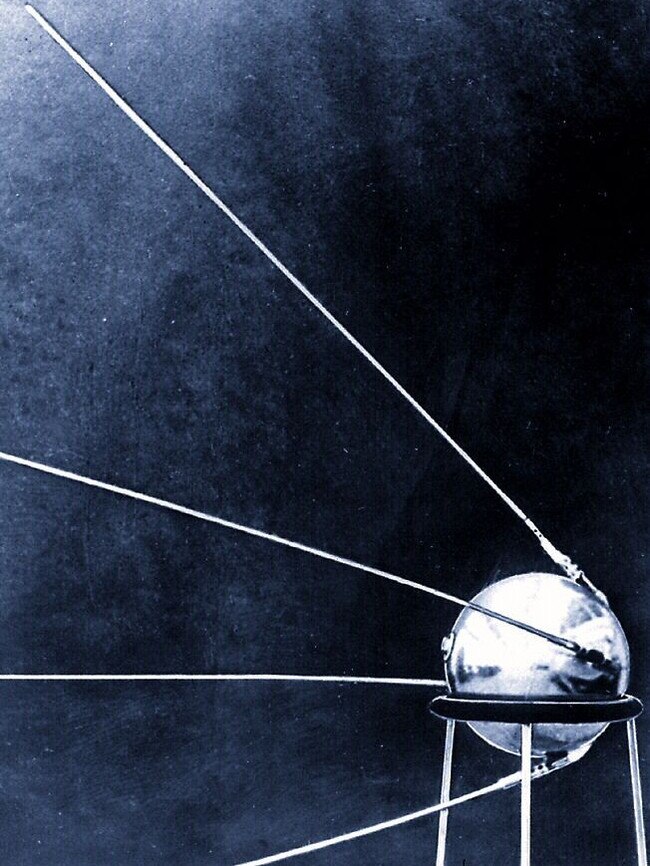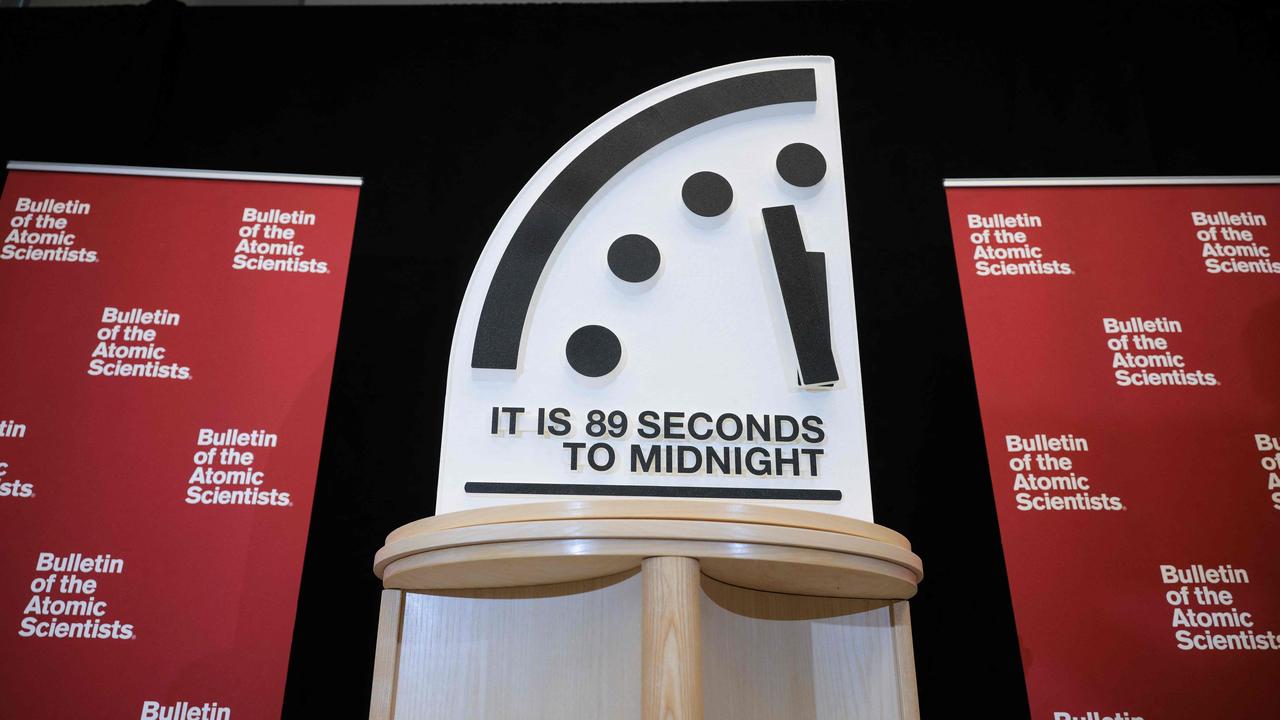Never before has one subject consumed the world’s people
Five billion mobiles connected to the internet — it’s an uber-Sputnik moment, writes SIMON BEVILACQUA

Opinion
Don't miss out on the headlines from Opinion. Followed categories will be added to My News.
I HAVE had enough of this bloody virus. As a journalist who has spent the best part of his life dealing with information, I fully understand the need to be informed but I’m cooked.
Of course, I will continue to try to keep abreast of the latest about COVID-19, but I feel emotionally fatigued and psychologically challenged.
I can only imagine how those more sensitive and susceptible to anxiety feel.
Mobile phones, iPads, notebooks, TVs, laptops, PCs and their 24/7 social media news feeds enable billions to be bombarded with talk of death, disease, pain, threat, risk and danger. The economy is collapsing; airlines are grounded, borders closed.
Life as we know it has changed and while some assure us it will return to normal, the time frame is vague, from weeks to months to a year or more.
The information blitzkrieg is ceaseless. The pandemic is the singular news of the world.
In 1957, the Soviet Union launched Sputnik I, the world’s first artificial satellite. The polished metal sphere had four antennas that broadcast radio pulses as it orbited our planet.
Sputnik triggered the space race between the Americans and the Russians not just because it threw down the gauntlet of superior Soviet technology but because the beep, beep, beep it emitted was detected worldwide, even by amateur radio enthusiasts.
Sputnik was global and its pulse reached a planetary audience beyond the US grasp.
Ten years later, the world had caught up with Russia and the historic Our World TV broadcast was beamed via satellites to 400 million people in 25 countries. Australia was among a dozen or so nations to contribute to a two-hour snapshot of a day in the life of the world. One country stole the show, England with the Beatles. The Fab Four performed All You Need is Love in a flower-strewn studio with celebrities Mick Jagger, Mia Farrow and Eric Clapton joining the chorus.
The Brits sent a message of peace and love to the world, a message of hope that had its genesis in the cultural shake-up of the 1960s, which embraced French Enlightenment ideals of freedom, equality and fraternity that underpinned Western society and ignited the civil rights movement and women’s liberation.

Sputnik had hinted at a dimensional change in global perspective for humanity where national boundaries were exposed as arbitrary lines on a map dividing the world’s people. The Our World extravaganza broadcast this reality to all corners of Earth, with a message of hope for personal, political, religious and economic freedoms.
A new global perspective was spreading the world.
A couple of years later, US astronauts landed on the moon and broadcast the feat to an even bigger global TV audience. The message was pregnant with hope and awe at the capability of our species. And despite the lunar landing being wrapped in the Stars and Stripes, most nations cheered it on as a win for humanity.
In the 1970s some thought a global perspective could rid the world of oppression. On April 1, 1973, at a press conference in New York City, John Lennon, who sang All You Need Is Love on the Our World broadcast, proposed a new country.
“We announce the birth of a conceptual country, Nutopia. Citizenship of the country can be obtained by declaration of your awareness of Nutopia,” Lennon said with Yoko Ono.
“Nutopia has no land, no boundaries, no passports, only people. Nutopia has no laws other than cosmic. All people of Nutopia are ambassadors of the country.”
Lennon’s April Fool’s Day creation was a tongue-in-cheek comment on his struggle to get a green card to become a US citizen, but it also hinted at a bigger picture where a new global perspective promised freedom, peace and love.
“Millions of mind guerillas putting their soul power to the karmic wheel,” Lennon sang in his 1973 song Mind Games. “Keep on playing those mind games forever, raising the spirit of peace and love.”
And on the same 1973 album, Lennon sang Only People: “Only people realise the power of people. Well, a million heads are better than one, so come on, get it on!”
Could mind power change the world for the better? It was an idea that intrigued me as a boy, the notion that positive thoughts en masse could have corporeal power like telepathic telekinesis. Many believe in the power of prayer, perhaps there is a collective psychic element to humanity’s path? My mind boggled as a boy. Even if the power Lennon sang of was not literal, change depended on people adopting a new frame of mind where peace was at least possible.
Seven years after singing these hopeful lyrics Lennon was assassinated, like so many leaders of 1960s movements, such as Martin Luther King Jr and the Kennedy brothers.
In the 40 years since, the world has become smaller with satellites beaming sport and cultural events such as the Olympics to billions and new communications technology connecting the globe.
The coronavirus pandemic, as a global focus, represents something mightily new.
Five billion mobile phones linked to the internet have given COVID-19 unrivalled coverage. Never before has one subject consumed the world’s people. It’s an uber-Sputnik moment. My concern is the viral message it brings is of fear, anxiety and collapse of the world as we know it.
If minds of peace and love can transform the world, what can a global mindframe that is feverish and panicked do?
Mind you, the technology driving the panic provides us, for the first time in human history, with the means to act rapidly enough to stop a global pandemic in its tracks. It’s a question of how much damage will be done in the meantime.


